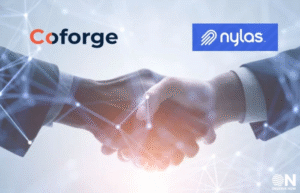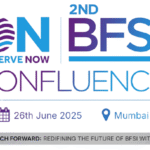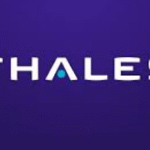Generative AI: The Silent Revolution Reshaping B2B Marketing

The B2B marketing landscape has long been defined by complex decision-making, lengthy sales cycles, and the need for deep industry expertise. Generative AI is now reshaping this space, fundamentally changing how businesses connect with enterprise clients. While consumer AI applications grabbed headlines in 2024, the real revolution is taking place in B2B marketing, where AI is optimizing processes, enhancing personalization, and delivering data-driven insights.
By turning data into actionable strategies, AI is no longer just a tool—it’s a core component of marketing strategy. With its market value expected to exceed $107.5 billion by 2028, AI is set to become an industry staple.
Transforming Content Creation & Distribution
Generative AI enables marketers to create not just more content, but smarter content tailored to industry verticals, company sizes, and buyer personas. In B2B markets, where multiple stakeholders influence purchasing decisions, AI-generated content ensures each audience receives relevant insights. Gartner predicts that AI-generated content will make up 30% of all enterprise-produced content, signaling a major shift.
For instance, AI can automatically generate customized content for technical decision-makers, financial stakeholders, and end-users, emphasizing key points most relevant to each role. This level of customization, once prohibitively resource-intensive, is now scalable.
Account-based marketing (ABM) has also evolved with AI-driven “precision scaling,” allowing companies to create highly personalized content for hundreds of target accounts while maintaining industry-specific relevance.
Revolutionizing Customer Engagement
We are entering an era of ‘adaptive B2B engagement,’ where AI dynamically adjusts marketing strategies based on real-time client interactions and market signals. Imagine sales enablement materials that proactively address client concerns before they arise or marketing content that adjusts technical depth based on the reader’s expertise.
AI-powered systems analyze vast interaction data to refine audience segmentation and optimize content timing, ensuring greater impact throughout the B2B buying cycle.
Navigating Implementation Challenges
Generative AI is not just another marketing tool—it is a fundamental capability that will define competitive advantage. However, deploying it in B2B marketing requires careful attention to accuracy, brand voice, and industry compliance.
A structured ‘3T Approach’—Training, Trust-building, and Transparency—is crucial. AI models must be trained on industry-specific terminology and compliance requirements to maintain relevance and credibility. Close collaboration between AI specialists and domain experts ensures AI-generated content aligns with B2B standards.
The Role of Human Expertise
Despite AI’s capabilities, human expertise remains irreplaceable in B2B marketing. The technology’s role is to augment, not replace, marketers—allowing them to focus on strategy, relationship-building, and creative problem-solving.
The future of B2B marketing belongs to those who can effectively integrate AI while preserving human insight. The question is no longer whether to adopt AI but how to harness it to drive meaningful engagement and competitive differentiation.
Disclaimer: The views expressed in this article are solely those of the author and do not necessarily reflect the opinions or policies of ObserveNow Media. The author is solely responsible for ensuring the accuracy, completeness, and validity of the information presented, encouraging readers to independently verify and seek professional advice if needed.
















